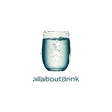Yes,Bearded dragons can drink tap water, but it’s not always safe unless treated properly. Tap water often contains chlorine, fluoride, and heavy metals that may harm your reptile’s kidneys and digestive system. To keep your bearded dragon healthy, always use dechlorinated, filtered, or bottled spring water instead.
You can make tap water safe by adding a reptile-safe water conditioner or using a home filtration system. Along with providing clean water, ensure your dragon stays hydrated through regular baths, misting, and moisture-rich vegetables. This combination helps mimic natural hydration sources and supports long-term health and vitality.
Is Tap Water Safe for Bearded Dragons?
Tap water safety for bearded dragons depends on what’s in it. In many areas, municipal water contains chlorine, chloramine, fluoride, and trace metals, all of which can irritate your dragon’s digestive tract and negatively affect its internal organs over time. These chemicals aren’t visible but can still be harmful when consumed daily.
While some dragons may appear fine drinking tap water occasionally, continuous exposure increases risks of dehydration, lethargy, and kidney strain. If your water source has high mineral or chemical content, it’s best to use filtered, bottled, or dechlorinated water instead. Simple water conditioners designed for reptiles or fish tanks can also remove harmful substances, making tap water much safer for regular use.
How Bearded Dragons Get Water in the Wild
In their natural desert habitats of Australia, bearded dragons rarely drink standing water. Instead, they stay hydrated through the moisture found in plants, insects, and morning dew that collects on rocks and vegetation. Rainwater runoff provides occasional opportunities to drink, but these moments are brief.
Their bodies are highly efficient at conserving water, allowing them to survive long, dry periods. Understanding this natural behavior helps explain why captive dragons may not instinctively drink from a bowl. Providing moist foods and occasional misting mimics their natural environment and helps maintain proper hydration without relying solely on tap water.

Why Chlorine and Fluoride Can Be Harmful to Reptiles
While tap water may seem safe for humans, it often contains chemicals like chlorine, chloramine, and fluoride that can be harmful to reptiles such as bearded dragons. These additives are used to disinfect water and make it drinkable for people, but a reptile’s body is far more sensitive.
Chlorine and fluoride can irritate a bearded dragon’s digestive system, leading to dehydration or gastrointestinal distress. Long-term exposure may also affect kidney and liver function, since these organs process toxins more slowly than in mammals. Additionally, the trace metals sometimes found in municipal water supplies can accumulate in a dragon’s body over time, causing subtle but serious health problems.
For this reason, reptile experts recommend offering dechlorinated or filtered water instead of plain tap water. This small adjustment can significantly improve your bearded dragon’s hydration and overall health.
How to Safely Offer Water to Your Bearded Dragon
Bearded dragons often don’t recognize standing water as drinkable, so owners need to get creative when keeping them hydrated. The safest approach is to use filtered, dechlorinated, or bottled spring water—never untreated tap water. Offer it in a shallow dish that’s easy for your dragon to access without risk of drowning. Some dragons prefer to lick droplets, so misting their vegetables or gently dripping water on their snout can encourage drinking.
Regular soaking baths (2–3 times per week) also help with hydration, as many dragons absorb small amounts of water through their vent and skin while bathing. Always dry them off afterward to prevent chilling. For hatchlings and juveniles, hydration is especially important for proper growth and shedding.
By providing clean, chemical-free water and multiple hydration methods, you’ll ensure your bearded dragon stays healthy and comfortable in captivity.

Signs of Dehydration in Bearded Dragons
Dehydration is a common but preventable issue in bearded dragons, especially if they rely solely on tap water or don’t drink often. Warning signs include wrinkled or sagging skin, sunken eyes, and lack of energy. A dehydrated dragon may also eat less or have dry, hard stools.
To check hydration levels, gently pinch the skin—if it doesn’t spring back quickly, your dragon needs more fluids. Another red flag is a sticky or dry mouth. If symptoms persist even after improving hydration, consult a reptile vet. Regular misting, baths, and offering fresh dechlorinated water can quickly restore balance.
Best Water Alternatives and Hydration Tips
If you’re unsure about using tap water, several safe alternatives can keep your bearded dragon properly hydrated. The best option is dechlorinated or filtered water, which removes harmful additives while maintaining essential minerals. Bottled spring water is also a good choice, as it’s free from chlorine and heavy metals.
To boost hydration naturally, include moist foods like collard greens, squash, and cucumber in their diet. You can also mist the enclosure lightly to raise humidity, but avoid making it too damp, as excessive moisture can cause respiratory issues. Regular warm baths allow dragons to drink and absorb water comfortably.
For added safety, always use a reptile-safe water conditioner to neutralize any remaining chemicals. Consistent hydration practices not only support digestion and shedding but also help prevent kidney issues and fatigue—keeping your bearded dragon healthy, active, and thriving.
FAQs About Bearded Dragons and Tap Water
1. Can bearded dragons drink tap water?
Yes, but only if it’s treated first. Tap water should be dechlorinated or filtered to remove chemicals like chlorine and fluoride that may harm your dragon.
2. How do I make tap water safe for my bearded dragon?
Use a reptile-safe water conditioner or let water sit uncovered for 24 hours to allow chlorine to evaporate. Filtered or bottled spring water is even safer.
3. How often should I give my bearded dragon water?
Provide fresh water daily and supplement hydration with baths and moisture-rich foods several times per week.
4. Can my bearded dragon get sick from tap water?
Yes, long-term exposure to untreated tap water may cause kidney strain, digestive irritation, or mineral buildup.





